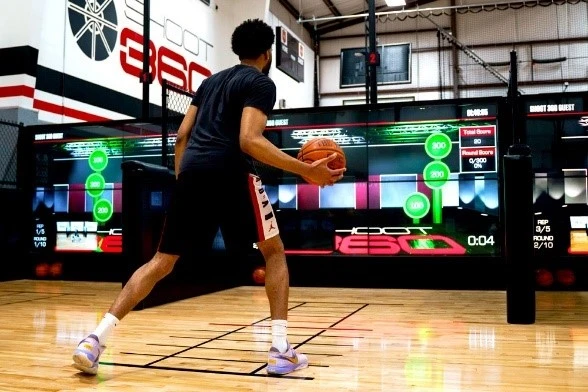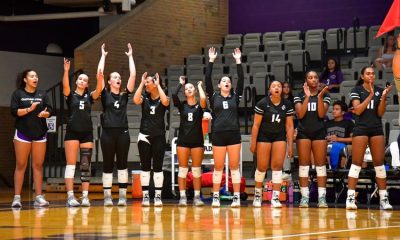The U.S. Olympic and Paralympic Committee has become the latest governing body in the sports world to enact a policy change around transgender athlete competition. Here’s a glance at the most prolific of those that have clarified or altered such rules this year:
U.S. Olympic and Paralympic Committee
Effectively barring transgender women from competing in women’s sports, the U.S. Olympic and Paralympic Committee announced on Monday that it has an “obligation to comply” with an executive order issued by President Donald Trump. The decree has threatened to rescind funding from organizations that don’t obey.
The USOPC oversees about 50 national governing bodies, most of which have some influence over youth sports all the way up to the elite levels, raising the possibility rules might need to be changed by local clubs to retain memberships.
International Cycling Union
The global governing body for cycling announced earlier this month that transgender women who transitioned after male puberty will no longer be able to compete in women’s races. The decision followed American rider Austin Killips becoming in May the first openly transgender woman to win an official cycling event.
University of Pennsylvania
Penn modified three school records set by transgender swimmer Lia Thomas in a decision earlier this month to settle a federal civil rights investigation, including an apology to female athletes “disadvantaged” by her participation on the women’s swimming team.
Thomas became the first openly transgender athlete to win an NCAA Division I title when she last competed for the Ivy League school in 2022. The Trump administration’s broader attempt to block transgender athletes from female sports included the Penn case. The Philadelphia university agreed to restore all individual records to female athletes who lost to Thomas.
World Aquatics
The global governing body for swimming, formerly known as FINA, announced in June a new “ gender inclusion policy ” that only permits transgender athletes who transitioned before age 12 to compete in women’s events. There are not currently any transgender women competing in elite levels of swimming.
World Aquatics also proposed a new “open competition” category, designating a committee to explore over the rest of the year the most effective guidelines for such events.
World Boxing Organization
The global governing body for boxing declared in May that all athletes would be subjected to mandatory sex testing in order to compete in sanctioned events. World Boxing’s announcement specifically mentioned Olympic champion Imane Khelif, the Algerian who won a gold medal at the Paris Olympics last year amid international scrutiny.
The previous governing body for Olympic boxing, the Russian-dominated International Boxing Association, disqualified Khelif and Taiwan’s Lin Yu-ting, another Paris gold medal winner, from its 2023 world championships after claiming they failed an unspecified eligibility test. Association officials have declined to answer basic questions about the test.
Khelif has said she was born a female.
British sports
Following a U.K. Supreme Court ruling in April, the British governing body for soccer issued a ban that took effect in June on transgender women playing on women’s teams in England and Scotland. Previously, the British Football Association allowed such participation if the athletes had reduced testosterone levels. The England and Wales Cricket Board also instituted a ban.
World Athletics Council
The governing body for track and field banned transgender women from international competition in March, while adopting new regulations that could keep South African star Caster Semenya and other athletes with differences in sex development from competing.
The World Athletics Council issued its edict in March, barring athletes who have transitioned from male to female and have gone through male puberty. No such athletes currently compete at the highest elite levels of track.
Another set of updates for athletes with differences in sex development raised the potential to impact up to 13 current high-level runners including Semenya, a two-time Olympic champion at 800 meters, who has been barred from that event since 2019. Her discrimination case is still moving through the court system.
Semenya and others had been able to compete without restrictions in events outside the range of 400 meters through 1 mile but now must undergo hormone-suppressing treatment for six months before becoming eligible.
National Collegiate Athletic Association
The NCAA, which oversees the vast majority of U.S. college athletics, announced in February — the day after Trump’s order — that competition in women’s sports would immediately be limited to athletes assigned female at birth. The NCAA has about 1,100 member schools with more than 500,000 athletes.
High school sports
Nebraska in June became the latest state to ban transgender students from girls’ sports, following similar bans by the high school associations for at least 24 other states. The Trump administration has clashed with multiple states over the allowance of such participation.
___
AP sports: https://apnews.com/sports
Copyright 2025 The Associated Press. All rights reserved. This material may not be published, broadcast, rewritten or redistributed without permission.

























































